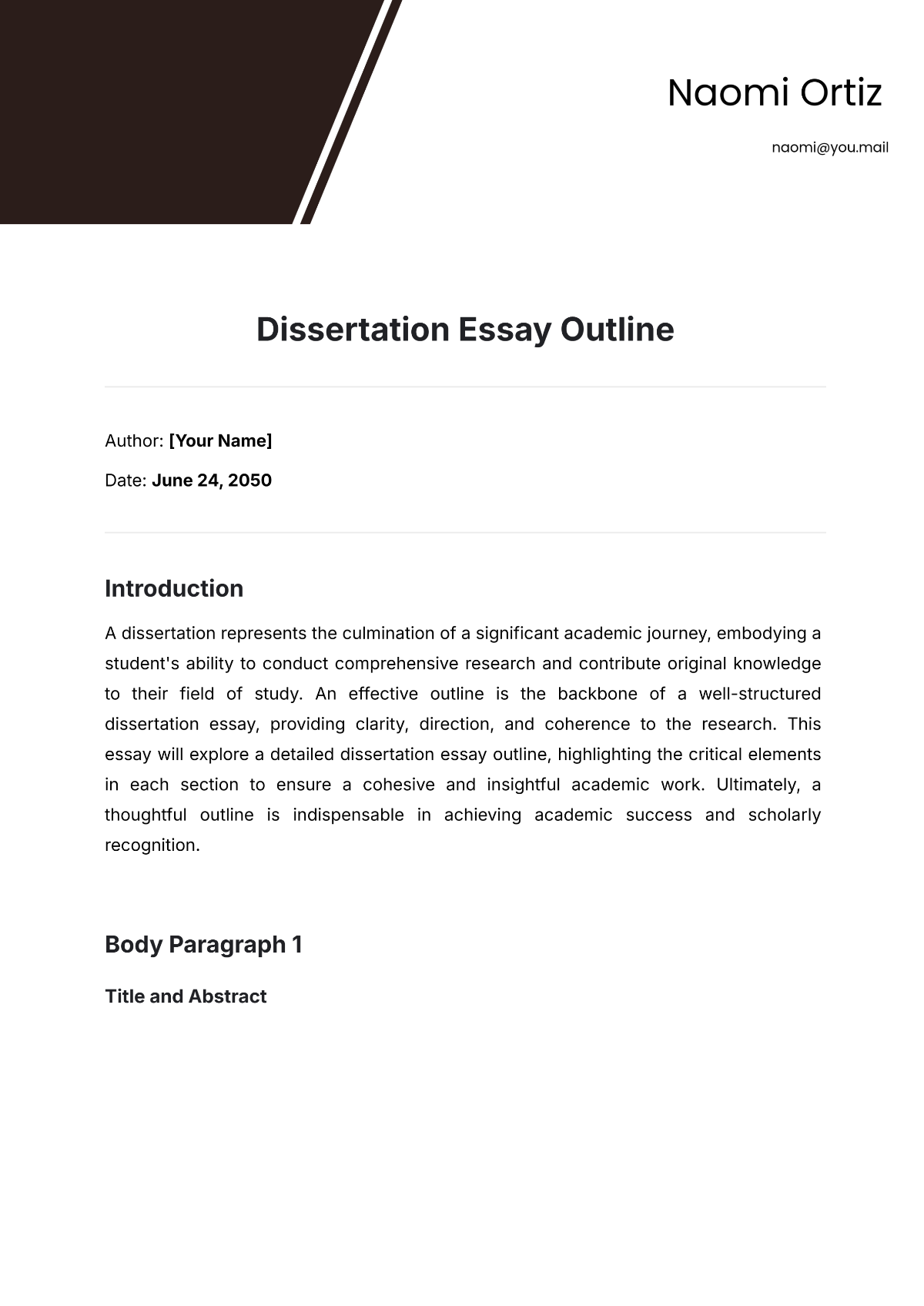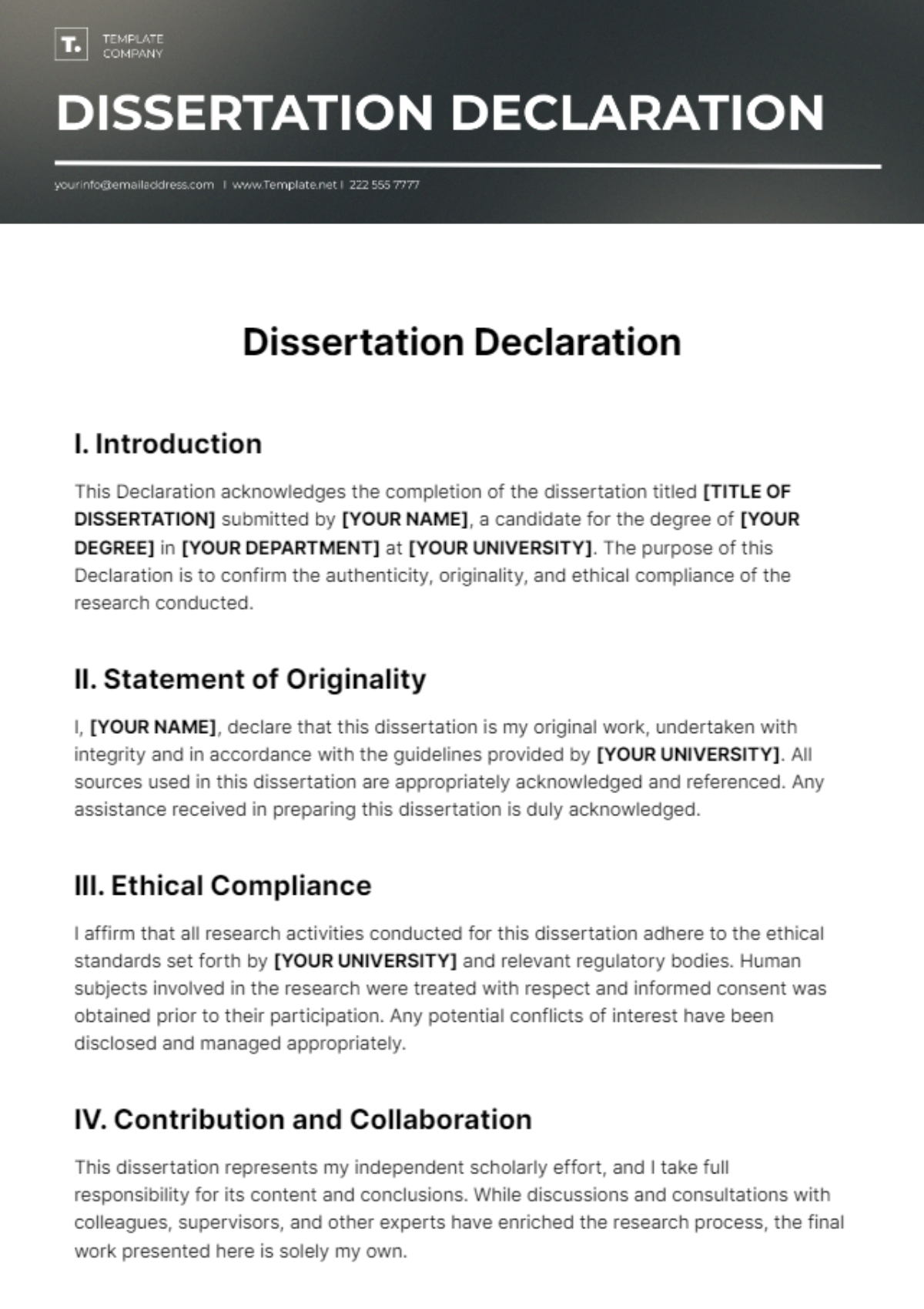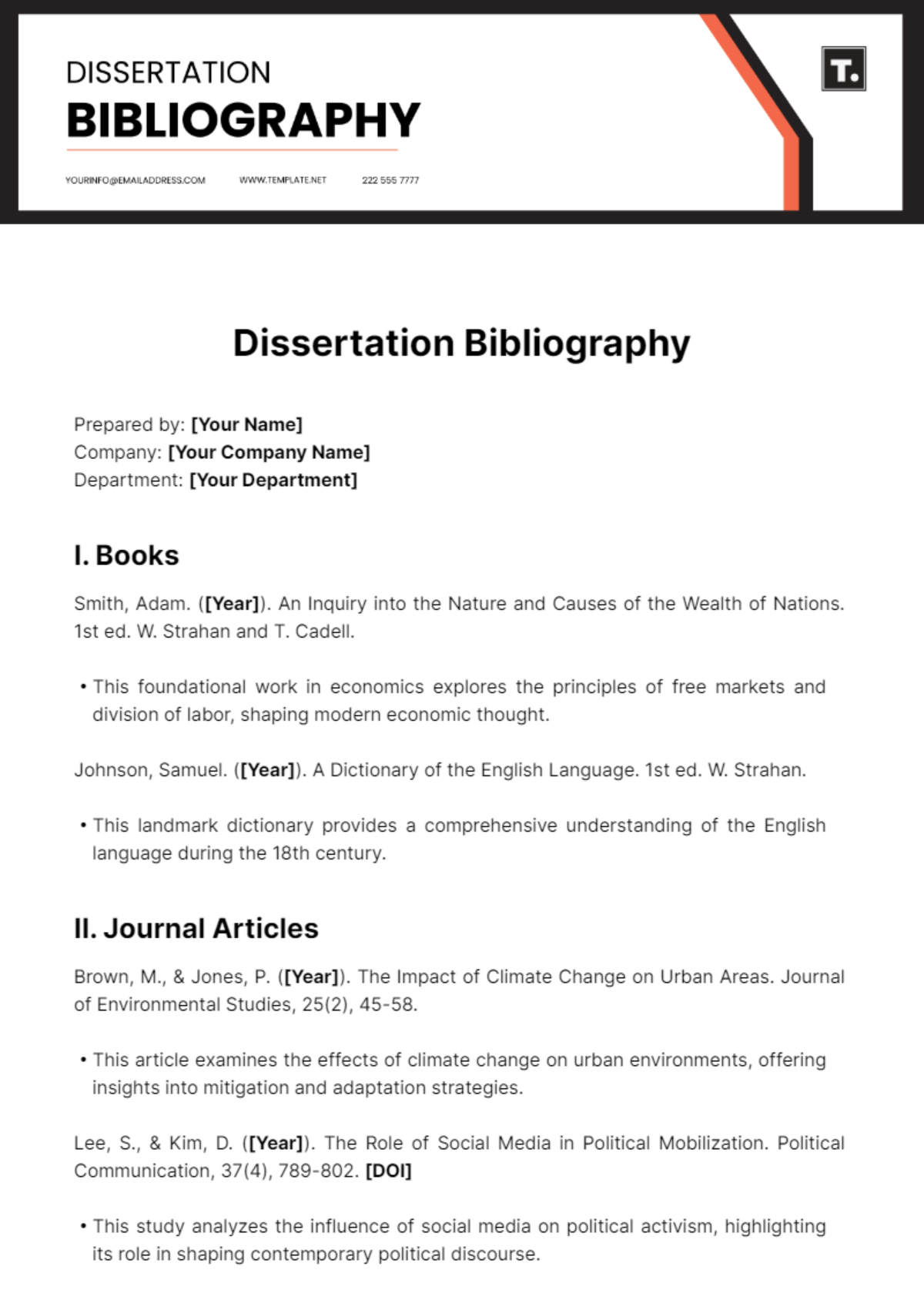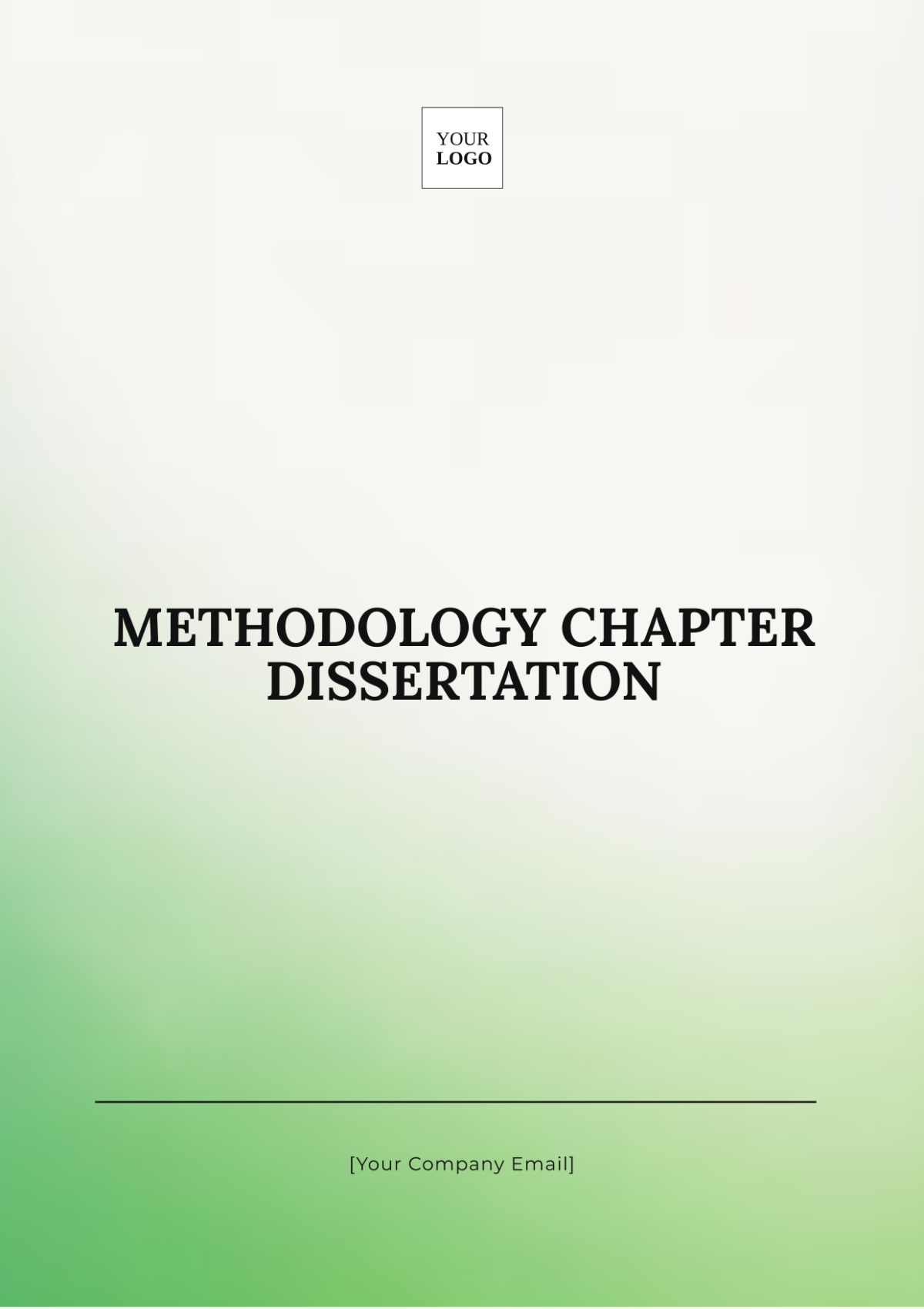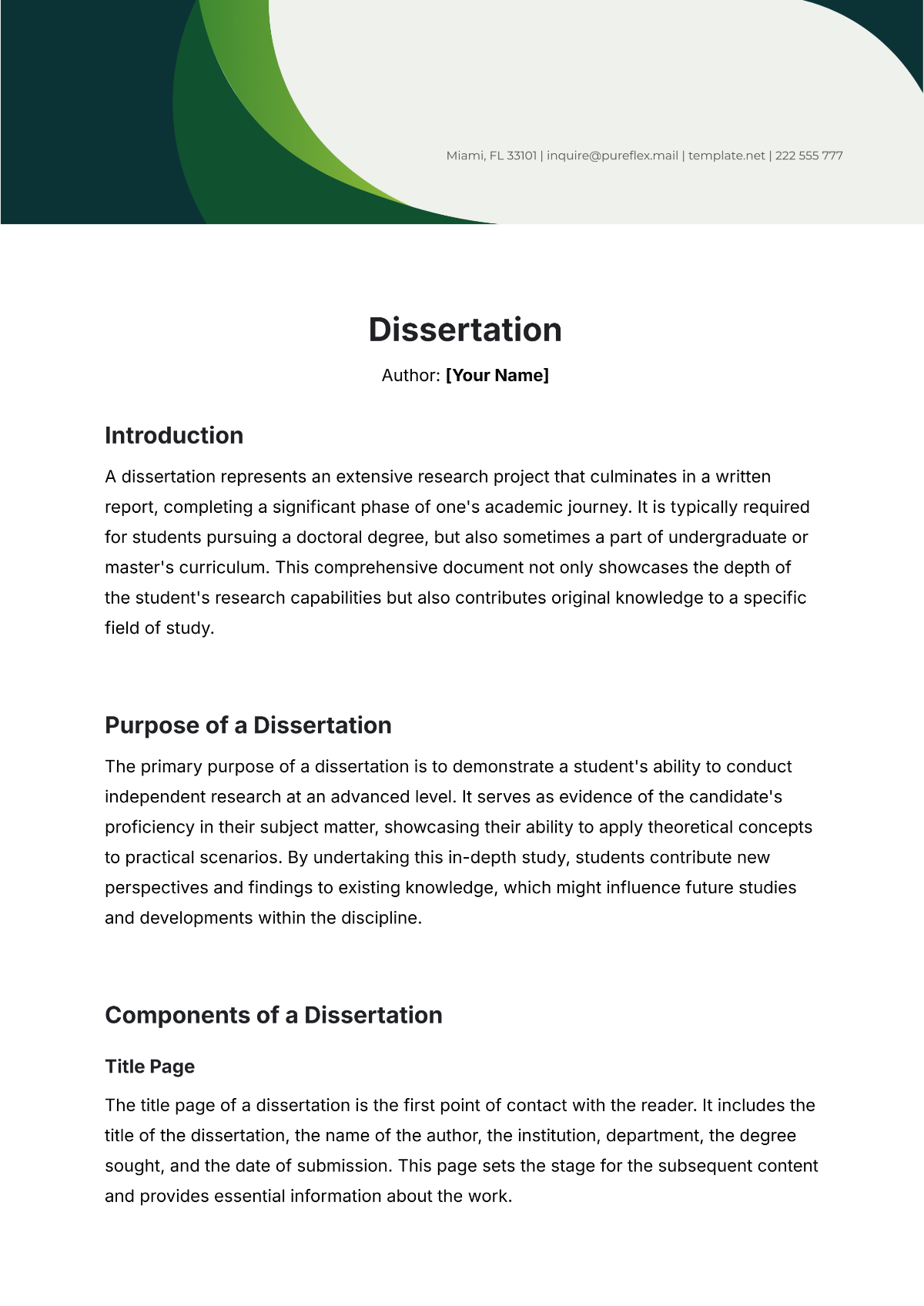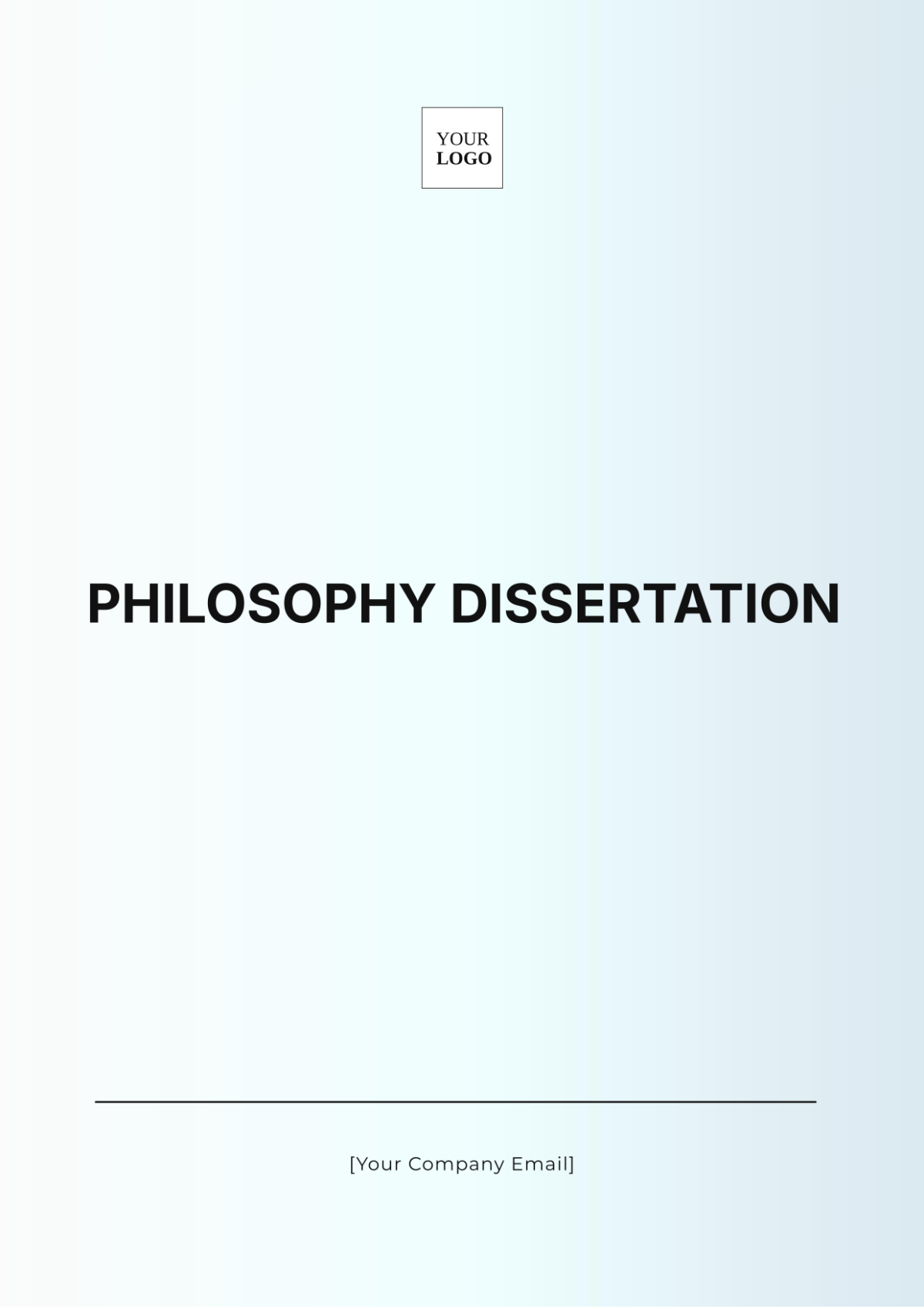PHILOSOPHY DISSERTATION
Abstract
This dissertation explores the impact and significance of existentialism within the realm of modern philosophy. By examining existentialist thinkers and their influence on contemporary thought, the research aims to provide a comprehensive understanding of how existentialist themes continue to shape modern intellectual landscapes.
I. Introduction
Existentialism, a philosophical movement that emerged in the 19th and 20th centuries, has profoundly influenced various aspects of modern philosophy. This dissertation seeks to delve into the existentialist perspective, the key thinkers involved, and the enduring legacy of this philosophical movement. The study will address the following questions:
What are the foundational principles of existentialism?
Who are the major existentialist philosophers, and what are their core contributions?
How has existentialism influenced modern philosophy and contemporary thought?
II. Literature Review
Historical Context
Existentialism arose in a period characterized by significant social, political, and cultural changes. It was a time marked by the decline of traditional religious beliefs and the rise of scientific rationality. This environment created fertile ground for existentialist ideas to take root.
Key Thinkers and Their Contributions
The following table summarizes the key existentialist philosophers and their major works:
Philosopher | Major Works | Key Contributions |
|---|---|---|
Søren Kierkegaard | "Fear and Trembling" | Explored the concepts of faith, despair, and individuality |
Friedrich Nietzsche | "Thus Spoke Zarathustra." | Challenged traditional morality and introduced the idea of "Übermensch." |
Jean-Paul Sartre | "Being and Nothingness" | Developed the notions of existential freedom and bad faith |
Simone de Beauvoir | "The Second Sex" | Examined existentialism through a feminist lens |
Philosophical Foundations of Existentialism
Existence Precedes Essence
One of the core tenets of existentialism is that existence precedes essence. This means that individuals are not born with a predetermined purpose or essence; instead, they create their own meaning and identity through their actions and choices.
Freedom and Responsibility
Existentialism emphasizes the importance of personal freedom and the inherent responsibility that comes with it. Individuals are free to make their own choices, but they must also face the consequences of those choices and take responsibility for their actions.
Alienation and Isolation
Many existentialist thinkers explore the themes of alienation and isolation. They argue that individuals often feel disconnected from society, from others, and even from themselves. This sense of alienation can lead to a profound awareness of one's own existence and the inherent absurdity of life.
III. Influence on Modern Philosophy
Phenomenology
Existentialism has greatly influenced the field of phenomenology, particularly through the works of Martin Heidegger and Maurice Merleau-Ponty. These philosophers explored how human beings experience the world and how their subjective experiences shape their understanding of reality.
Postmodernism
Postmodern thinkers have drawn on existentialist ideas to challenge traditional notions of truth, knowledge, and identity. They argue that meaning is not fixed but is instead constantly constructed and deconstructed through language and social practices.
Psychoanalysis
Existentialist themes have also found their way into psychoanalytic theory, particularly in the works of existential psychoanalysts like Rollo May and Irvin Yalom. These theorists focus on the existential concerns of individuals, such as the fear of death, the search for meaning, and the experience of existential anxiety.
IV. Contemporary Relevance of Existentialism
Existentialism in Popular Culture
Existentialist themes continue to appear in various forms of popular culture, including literature, film, and music. Works like Albert Camus' "The Stranger," the films of Ingmar Bergman, and the music of artists like David Bowie and Radiohead all reflect existentialist concerns.
Existential Psychology
The principles of existentialism have been integrated into contemporary psychological practices. Existential therapy focuses on helping individuals confront existential concerns, such as freedom, isolation, meaninglessness, and mortality, to live more authentic and fulfilling lives.
Ethics and Political Philosophy
Existentialist ideas have also influenced contemporary debates in ethics and political philosophy. Thinkers like Jean-Paul Sartre and Simone de Beauvoir have contributed to discussions on human rights, freedom, and social justice, emphasizing the importance of individual agency and responsibility.
V. Conclusions
Existentialism has had a profound and lasting impact on modern philosophy and continues to be relevant in contemporary thought. By emphasizing personal freedom, responsibility, and the search for meaning, existentialist thinkers have challenged traditional philosophical paradigms and opened up new avenues for exploring the human condition. This dissertation has highlighted the key principles of existentialism, examined its influence on various philosophical fields, and discussed its contemporary relevance, demonstrating the enduring legacy of this important philosophical movement.
